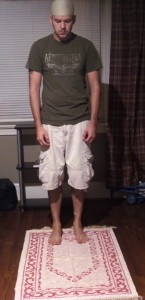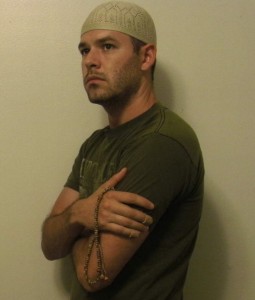Anytime folks combine money with religion, everyone in the room gets a little nervous. There’s always that social pressure–especially in environments where an offering plate is passed around. I was never a fan of the offering plate or the demands for 10% of my income.
Zakat and Sadaqa in Islam, however, are two very interesting and compelling concepts.
Zakat in particular is the third pillar in Islam. In the Western world, it’s likened to the tithe, however that’s highly inaccurate. The tithe usually supports the church, its financial obligations (such as paying a clergy, admin, building needs, etc.), and then social programs for the local community (or just the church community). Zakat is 2.5% of one’s total wealth (including property value) and is given to the entire community. The word itself is loosely translated as “growth” or “purification,” but how does giving one’s money away enable growth or purification? The Qur’an put’s it this way:
“The parable of those who spend their substance in the way of Allah is that of a grain of corn: it grows seven ears and each ear Hath 100 grains. Allah gives manifold increase to whom He pleased: And Allah cares for all and He knows all things.” Qur’an 2: 261
Giving zakat then purifies and encourages growth of one’s wealth in the same way that pruning a tree helps it grow. But we cannot offer this pillar of the faith purely on selfish reasons. In Islam, Muslims acknowledge that nothing is truly theirs, but only held in trust, as all things belong to Allah. We then are simply conduits of the earth’s bounty, and the zakat is Allah’s command to support those in our communities less fortunate than ourselves. It is often noted that stealing food in Islamic society is rarely punishable because allowing hunger in such a society is a higher crime itself! For this reason we are enjoined to give back to Allah (and therefore His people) what belongs to Him in the first place. Such pruning can flow through many charitable organizations, such as the Zakat Foundation of America, who distributes zakat and sadaqa donations to the needy all over the world.
But what about that other word: sadaqa? If the zakat is a holy obligation to support the less fortunate in the community, then is this something else? Sadaqa are voluntary alms in addition to the obligatory zakat, however the gorgeous thing about sadaqa is that it goes much further.
The Prophet Muhammad (pbuh) asked everyone to offer sadaqa. This offering comes in the form of a smile to a stranger, a helping hand to a neighbor, offering cash or a warm meal to a begger, or maybe volunteering at a local homeless shelter. None of these acts benefit the giver directly because the point of zakat and sadaqa is not in helping oneself, but those around you. But every act of service and charity is a ripple, and the blessings always return to the giver. In an ideal Islamic society, the poor and needy do not exist, as all are enjoined to work and give with joy, faith, and ability.
Interestingly enough, the idea of zakat does not imply a welfare state as its critics argue. Notice that all members of society are obligated to give out of their means and ability. The idea here is that all are not merely supported (as in a “nanny state”), but given the means to eventually support themselves and thus partake in the zakat obligation. In essence, we are commanded to bring such relief and self-direction to our lives that the need for zakat eventually becomes obsolete!
I would like you to consider what you could do for sadaqa in your daily life. How often are one of our neighbors struggling with a heavy box or carrying groceries into their homes and we ignore them? How many times do we walk along the street, so stressed about our lives that we forget to smile at our fellow man? Do you not realize how powerful a warm smile can be to someone in turmoil?
It is often even more difficult to bring these lessons home. Sometimes it’s easier to help a complete stranger than your own family members. There are times when I get so caught up with what I can do to better serve Project Conversion’s audience that I forget that my daughters just want to play with me. I often stay up late at night working on posts or new ideas for the project, leaving my wife to fall asleep alone. No doubt, what I do here is important, but what is my first priority: you, or my family? That’s a question we should never ask ourselves.
So let’s take a lesson from the concept of zakat and sadaqa and apply it to our lives. There is a balance, one that serves all members of our society. Each time you give–monetary or otherwise–you are investing in that society’s well-being. How could anyone scoff at that?

